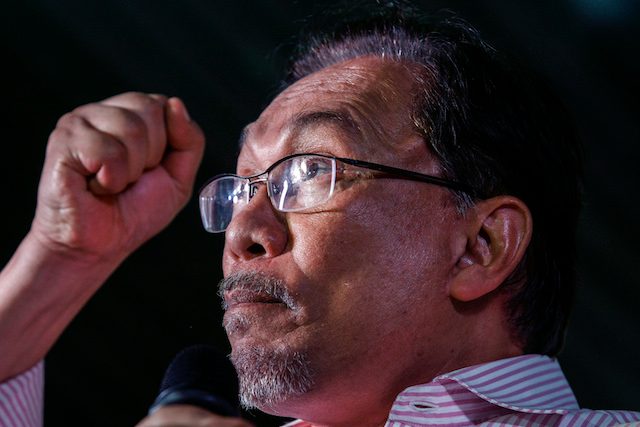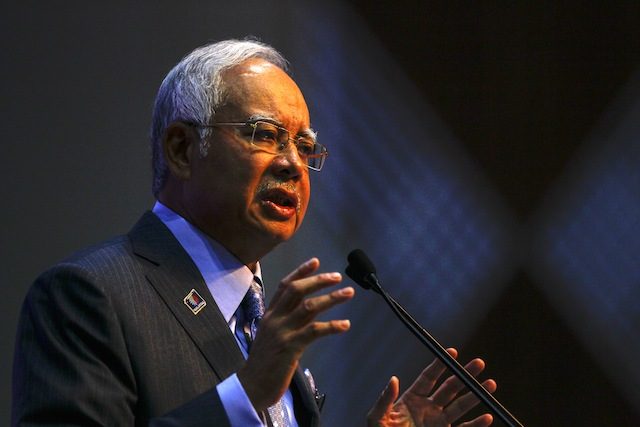SUMMARY
This is AI generated summarization, which may have errors. For context, always refer to the full article.

The fate of long-time Malaysian opposition Leader Anwar Ibrahim was decided this Tuesday, February 10, and along with it the increasingly slim democratic prospects in the country.
With his 5-year jail sentence for sodomy, Malaysia’s rulers aren’t so much as goose stepping but making a mad dash towards authoritarian rule… again.
It may already be there, with one Malaysian MP labelling the country an “electoral authoritarian regime” – elections merely giving the facade of democracy or the “lipstick on the crocodile”.
Ruled on a potent mix of race politics and economic development, independent Malaysia has always swayed between democracy and authoritarianism – but recent developments show that the pendulum is firmly stuck to the right.
There can be little doubt that Anwar’s protracted trial and conviction have a political edge. Section 377B of Malaysia’s penal code, which criminalises same-sex relations, is a relic of British colonial rule and clear violation of international human rights law.
Even if Anwar did engage in a sexual act with former political aide Mohamad Saiful Bukhari Azlan – an accusation he has always denied – only 7 sodomy cases, two involving Anwar, have been prosecuted since the country’s independence from British rule in 1957.
As the face of ‘cleaner politics’, Anwar has been in the sights of Malaysia’s rulers for the better part of two decades. As far back as 1998, and the reformasi movement which called for an end to corruption and cronyism, a senior officer in Malaysia’s intelligence agency the Special Branch, told the United States embassy in Malaysia that they were “going to file charge after charge… so Anwar spent the next 100 years in jail”.
As shocking as the court’s decision is, it is hardly surprising considering the perilous path Malaysia has been charting for a number of years.

In 2011 there were positive moves towards democratic reform under current Prime Minister Najib Razak and his Barisan Nasional ruling coalition, including ending a decades’ long state of emergency, amending several repressive laws, and repealing the notorious Internal Security Act, with promises to do the same with the catch-all 1948 Sedition Act.
But the more things change, the more they stay the same, with Najib now going back on that promise in November 2014. The sedition act, now strengthened, remains and so to the silencing of opposition voices.
This trial – the sharp edge in a larger thrust – has stabbed at the heart of the opposition movement. With Anwar behind bars, Barisan Nasional have removed the greatest threat to almost 60 years of uninterrupted rule.
Anwar came within a whisker of unseating them in the 2013 general elections. He won the popular vote, only for patent ‘gerrymandering’ seeing Barisan Nasional ‘win’ the elections by 133 seats to 89. With elections due by 2018, Malaysia’s masters clearly want to remove any risk of a repeat.
It may just work.
The conviction is likely to end Anwar’s direct role in Malaysian politics. In addition to five years in jail, he loses his status as an MP, and is barred from holding any political office for another five years after his release.
Anwar may be able to influence politics from jail. There is also a sense that this latest conviction may also galvanise the opposition and its support in the country’s next election, and Anwar now becomes a powerful symbol of oppression in the country.
However what is a fairly loose and broad coalition must hold together, and it will lack the figurehead which helped win the popular vote two years ago. The 2013 elections should have consolidated opposition forces; instead they are scratching each other’s eyes out.
The situation is compounded by the lack of a clear successor to Anwar. His wife, Wan Azizah, may take the mantle, as she did during his previous incarcerations, but won’t be supported by all opposition parties.
Meanwhile Najib and his party still control all the resources of the state – including its finances, media, security, the Attorney-General, and the Election Commission. Add to that the judiciary, and that is a formidable power base not to be underestimated.
As Kim Quek writes, the Anwar trial is a representation of a greater sell-out for the country’s democracy and justice.
“Now that the judiciary has virtually been taken over by the executive, and a lame duck parliament limping as rubber stamp for the executive, one wonders how much different Malaysia is from a dictatorship.”
And so, Barisan Nasional and Malaysia’s ruling elite go marching on. – Rappler.com
James Giggacher is Asia Pacific editor at the Australian National University’s College of Asia and the Pacific. This article is an edited version of an essay written for the Asian Studies Association of Australia’s ‘Asian Currents’.
Add a comment
How does this make you feel?
There are no comments yet. Add your comment to start the conversation.